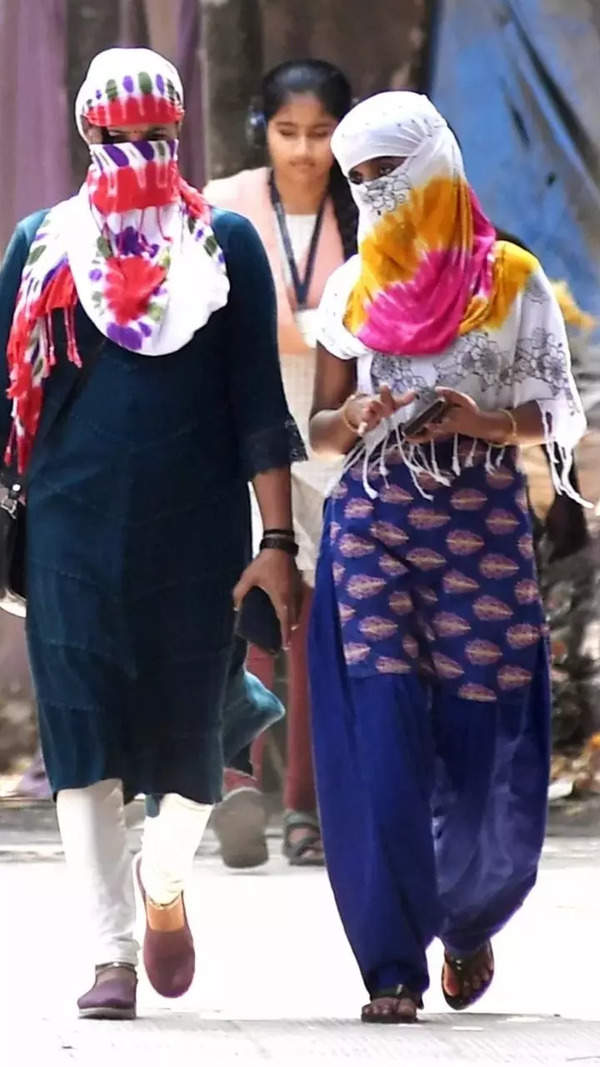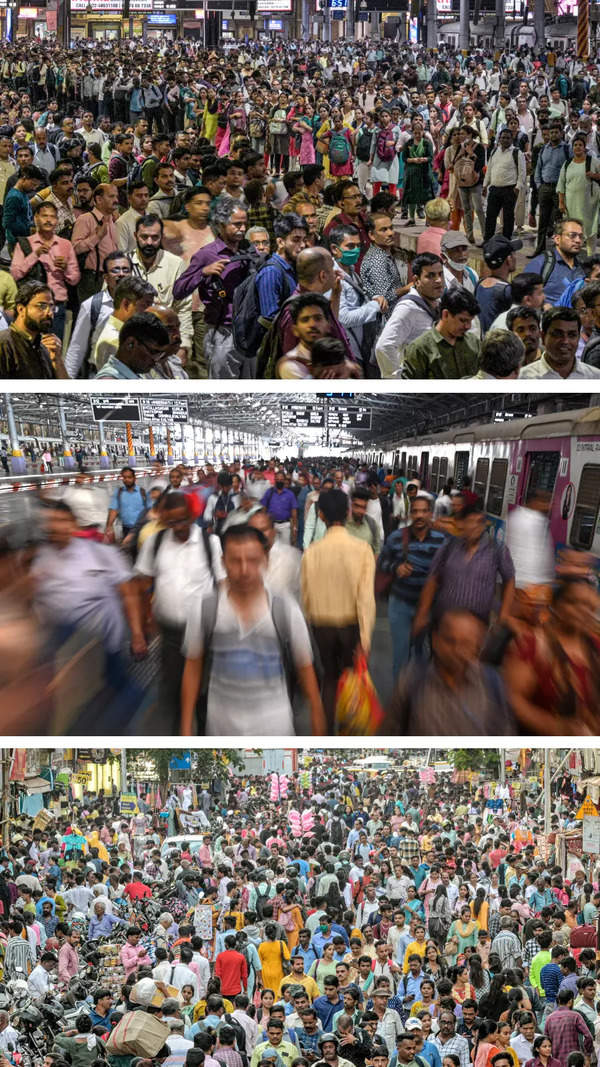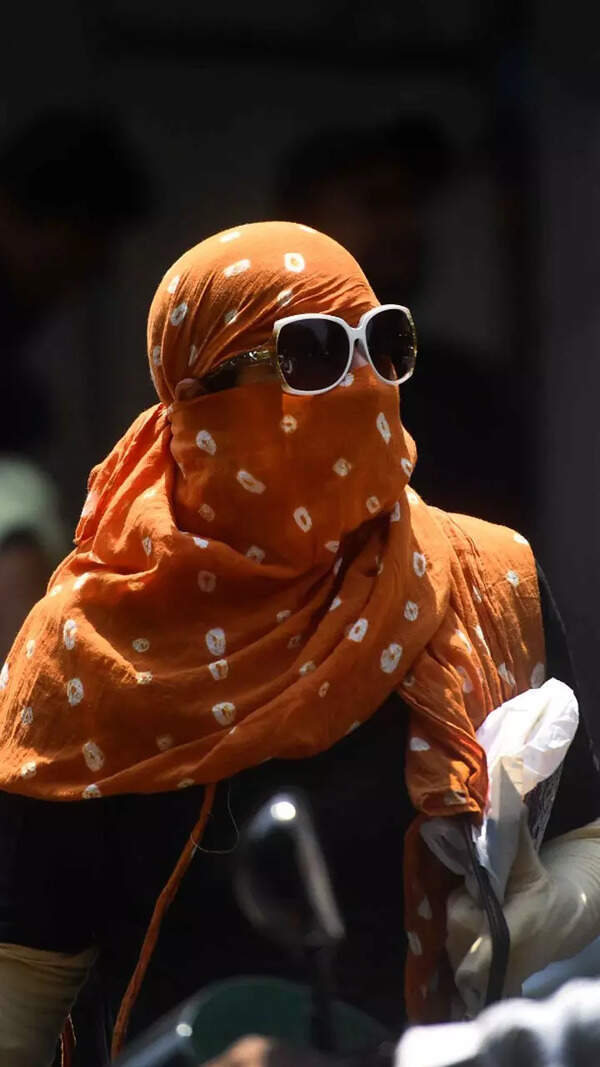- News
- India News
- Pandemic impact: 2.7 million children in India missed out on routine immunisation in 2021; number was 3 million in 2020
Trending Topics
Pandemic impact: 2.7 million children in India missed out on routine immunisation in 2021; number was 3 million in 2020

NEW DELHI: The perception regarding importance of childrens' vaccines held firm or improved after the Covid-19 pandemic only in China, India and Mexico out of 55 countries studied, according to Unicef’s “State of the World’s Children 2023” report. However, data also shows that there were around 2.7 million "zero-dose" (unreached or missed out) under-5 children in India who did not receive a single dose of the necessary vaccines during 2021. This number was higher and had touched 3 million in 2020 when the pandemic struck, severely impacting immunisation drives.
Elaborating on the data Unicef India officials stated that “despite an increase in the number of zero-dose children to three million by the end 2020 the first year of the pandemic, India was able to arrest the backslide and the number of children in this category who did not get a single dose of vaccines was down to 2.7 million for the year 2021, which represents a smaller proportion of India’s under -5 child population given its size and the world's largest birth cohort.” Zero-dose children are those who have not received a single routine vaccine.
Unicef India in a statement on the release of the report on Thursday attributed this ability to arrest the backslide by India to sustained evidence-based catch-up campaigns initiated by the government of India, including the Intensified Mission Indradhanush (IMI), continued provision of comprehensive primary health care services, a strong routine immunisation programme and dedicated health workers.
As per the WHO-UNICEF estimates (WUENIC 2020-21) of national immunisation coverage, the number of unvaccinated or “zero-dose” children rose from 13 million to 18 million globally between 2019 and 2021, an increase of more than a third.
Meanwhile, new data produced for the report by the International Center for Equity in Health found that in the poorest households, 1 in 5 children are zero-dose while in the wealthiest, it is just 1 in 20.
Meanwhile, the report also highlights India as one of the countries with the highest vaccine confidence in the world. Based on new data collected by the “Vaccine Confidence Project” (London School of Hygiene and Tropical Medicine) and published by UNICEF, the report reveals that popular perception of the importance of vaccines for children held firm or improved only in China, India and Mexico out of 55 countries studied. While the vaccine confidence marks a decline in over a third of the studied countries like the Republic of Korea, Papua New Guinea, Ghana, Senegal and Japan after the start of the pandemic.
The report warns of the growing threat of vaccine hesitancy due to factors such as access to misleading information and declining trust in vaccine efficacy. The decline in vaccine confidence globally comes amid the largest sustained backslide in childhood immunization in 30 years, fuelled by the Covid-19 pandemic.
The report also raises concern that it is estimated that 67 million children missed out on vaccinations between 2019 and 2021, with vaccination coverage levels decreasing in 112 countries. In 2022, for example, the number of measles cases was more than double the total in the previous year. The number of children paralysed by polio was up 16 per cent year-on-year in 2022. When comparing the 2019 to 2021 period with the previous three-year period, there was an eight-fold increase in the number of children paralysed by polio, highlighting the need to ensure vaccination efforts are sustained.
Elaborating on the data Unicef India officials stated that “despite an increase in the number of zero-dose children to three million by the end 2020 the first year of the pandemic, India was able to arrest the backslide and the number of children in this category who did not get a single dose of vaccines was down to 2.7 million for the year 2021, which represents a smaller proportion of India’s under -5 child population given its size and the world's largest birth cohort.” Zero-dose children are those who have not received a single routine vaccine.
Unicef India in a statement on the release of the report on Thursday attributed this ability to arrest the backslide by India to sustained evidence-based catch-up campaigns initiated by the government of India, including the Intensified Mission Indradhanush (IMI), continued provision of comprehensive primary health care services, a strong routine immunisation programme and dedicated health workers.
As per the WHO-UNICEF estimates (WUENIC 2020-21) of national immunisation coverage, the number of unvaccinated or “zero-dose” children rose from 13 million to 18 million globally between 2019 and 2021, an increase of more than a third.
Meanwhile, new data produced for the report by the International Center for Equity in Health found that in the poorest households, 1 in 5 children are zero-dose while in the wealthiest, it is just 1 in 20.
Meanwhile, the report also highlights India as one of the countries with the highest vaccine confidence in the world. Based on new data collected by the “Vaccine Confidence Project” (London School of Hygiene and Tropical Medicine) and published by UNICEF, the report reveals that popular perception of the importance of vaccines for children held firm or improved only in China, India and Mexico out of 55 countries studied. While the vaccine confidence marks a decline in over a third of the studied countries like the Republic of Korea, Papua New Guinea, Ghana, Senegal and Japan after the start of the pandemic.
The report warns of the growing threat of vaccine hesitancy due to factors such as access to misleading information and declining trust in vaccine efficacy. The decline in vaccine confidence globally comes amid the largest sustained backslide in childhood immunization in 30 years, fuelled by the Covid-19 pandemic.
The report also raises concern that it is estimated that 67 million children missed out on vaccinations between 2019 and 2021, with vaccination coverage levels decreasing in 112 countries. In 2022, for example, the number of measles cases was more than double the total in the previous year. The number of children paralysed by polio was up 16 per cent year-on-year in 2022. When comparing the 2019 to 2021 period with the previous three-year period, there was an eight-fold increase in the number of children paralysed by polio, highlighting the need to ensure vaccination efforts are sustained.
Start a Conversation
FOLLOW US ON SOCIAL MEDIA
FacebookTwitterInstagramKOO APPYOUTUBE










